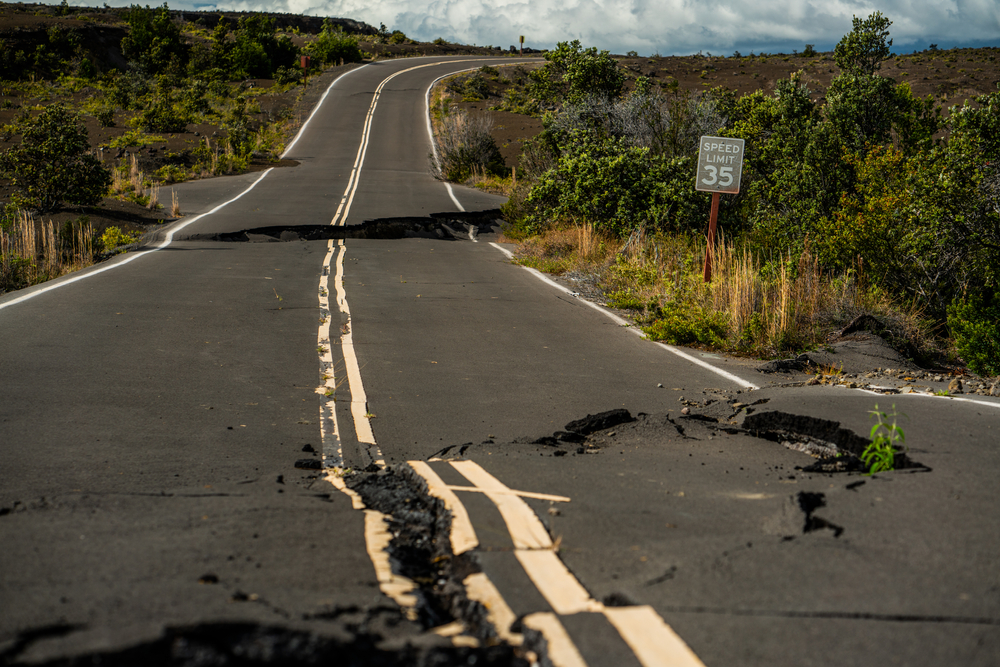Is Earthquake Insurance Worth It?
For a wide range of different reasons, one situation that you absolutely do not want to find yourself in is an earthquake.
Setting aside the fact that earthquakes are inherently dangerous, the level of damage that one can do to your home and other personal property can be costly and even catastrophic in some situations. This has led many people to wonder to themselves whether they need to invest in a specific earthquake insurance policy to get additional protection from the financial side of things.
But is earthquake insurance right for you? To answer that question, you need to know more about how it works and which situation calls for this type of coverage.
What Is Earthquake Insurance?
As the name implies, earthquake insurance is a specific type of policy designed to protect your home in the event that it is damaged in an earthquake. Note that this policy will operate entirely separately from any pre-existing homeowner's or renter's insurance policy that you may have.
What Does Earthquake Insurance Cover?
While all earthquake insurance policies will vary depending on the provider, they typically all cover the same basic elements. These include ones like:
Dwelling Coverage
This is money set aside that will help you pay to either repair or totally rebuild your home after an earthquake.
Additional Structures Coverage
This will cover any additional structures on your property that are not considered to be a part of the main house. That can include things like detached garages, sheds, fences, and more.
Personal Property Coverage
Any personal property that was damaged as a direct result of the earthquake will be paid for under this section of the policy.
Loss of Use Coverage
 This will include any expenses that you have to contend with as a direct result of the earthquake. That often involves lodging (you may need to stay in a hotel while your house is being worked on until it is deemed safe again), transportation, and even meals if your home is considered to be temporarily uninhabitable.
This will include any expenses that you have to contend with as a direct result of the earthquake. That often involves lodging (you may need to stay in a hotel while your house is being worked on until it is deemed safe again), transportation, and even meals if your home is considered to be temporarily uninhabitable.
Again, some policies may offer additional types of coverage, but most include at the very least these basic elements.
Is Earthquake Insurance Worth It?
With all of that in mind, it's important to ask again - "is earthquake insurance worth the investment?" As is true with most things in life, the answer is a resounding "it depends."
If you live in an area that historically never deals with earthquakes, it probably doesn't make much sense to purchase such a policy. You may feel totally comfortable going along without it because the odds are in your favor. If you're in an area that sees earthquakes on a regular basis, however, you will probably want to buy a policy even if those incidents are relatively small in nature.
According to the USGS, you should consider the following factors when deciding whether to purchase your own earthquake insurance policy:
- The proximity of your house to any active earthquake faults. The farther away you are, the less likely a damaging earthquake is.
- The seismic history of the region. If the area of the country you live in never experiences earthquakes, you probably don't have anything to worry about.
- The time since the last earthquake occurred. If it's been 100+ years since the last earthquake, it's less likely that you'll experience another one anytime soon than if earthquakes happen on a monthly basis.
- The construction of your home. This includes not only the type of building you're talking about but also the foundation as well.
- Local site conditions. Many people don't realize that both the type and the condition of the soil surrounding your home will play a role in how much damage you might sustain.
- The slope of the land your house is built on.
- The annual rainfall that your part of the country experiences, can have an impact on things like soil and other conditions.
- The value of your home and all the contents contained inside (meaning how much money it would cost to replace everything if you, unfortunately, suffered a total loss).
- The cost of the earthquake insurance policy and any restrictions on coverage (with your deductible being the primary example).
If you carefully consider all of those elements (and have an expert help assess ones you may not be able to do yourself, like soil conditions), the choice of whether to invest in earthquake insurance should become relatively clear.
What If I Don't Have Earthquake Insurance?
If you don't have earthquake insurance, and you suffer major, irreparable damage to your home as a result of one, you'll likely end up paying for those expenses out of pocket. Keep in mind that this type of natural disaster is probably not covered by your pre-existing homeowner's or renter's insurance policy.
Because of that, an earthquake insurance policy is at the very least worth considering if you A) don't have the funds already saved up to rebuild your home should the need arise, or B) can't repurchase your personal belongings. If you would have trouble finding and paying for temporary living expenses, this is also another reason why you would want an earthquake insurance policy.
But again - it may literally not make sense to have such a policy if you live nowhere near a fault line and your area has never experienced an earthquake. Always do your research before making the call one way or another - don't leave anything this important to chance or you will likely regret it in the long run.
In the End
No matter what, if you decide to purchase earthquake insurance or if you decide to forgo the investment and put that money to use elsewhere, always make the most informed decision that you can. A lot of the aforementioned information is publicly available if you don't already have it. You can look up the seismic history of your region online and things like building construction are also publicly available.
 Do your research and only after thinking things through very carefully will you be in the best position possible to decide if purchasing a policy will be financially beneficial moving forward. After all, as is true with most types of insurance, it's ultimately better to have a policy and not need it than need a policy and not have it. Especially when you're talking about something as unpredictable as Mother Nature.
Do your research and only after thinking things through very carefully will you be in the best position possible to decide if purchasing a policy will be financially beneficial moving forward. After all, as is true with most types of insurance, it's ultimately better to have a policy and not need it than need a policy and not have it. Especially when you're talking about something as unpredictable as Mother Nature.



